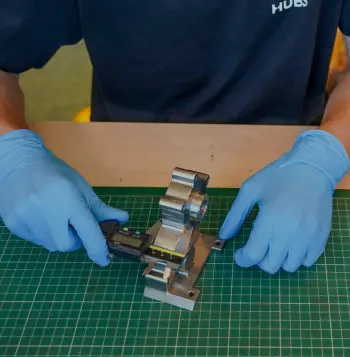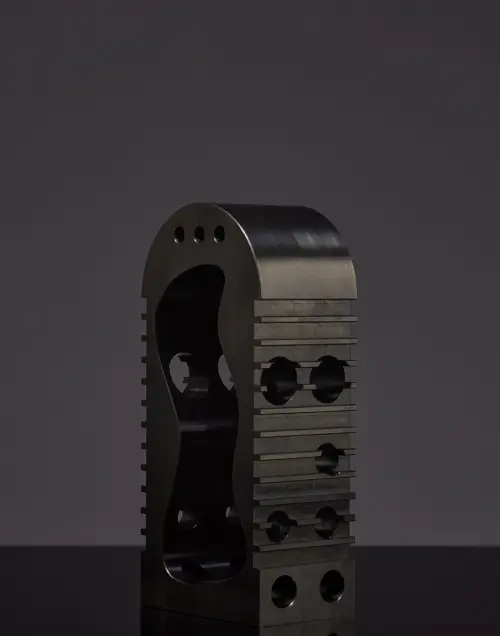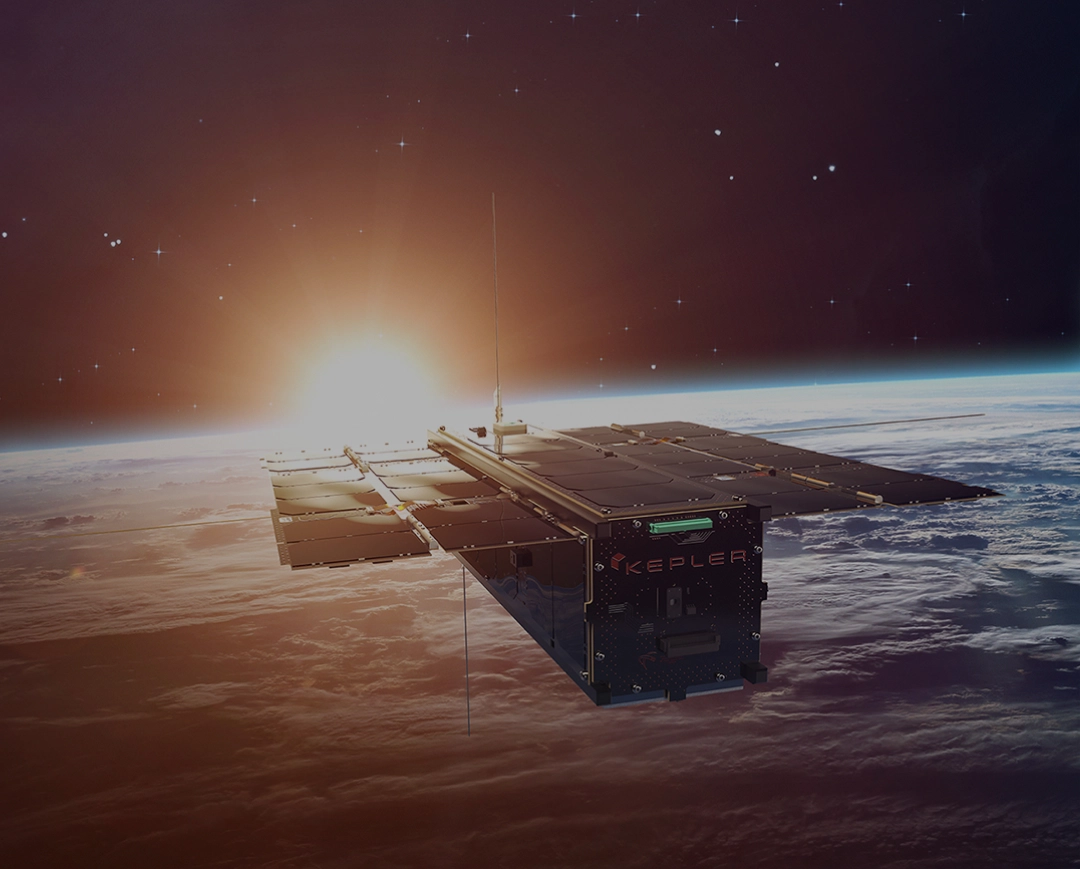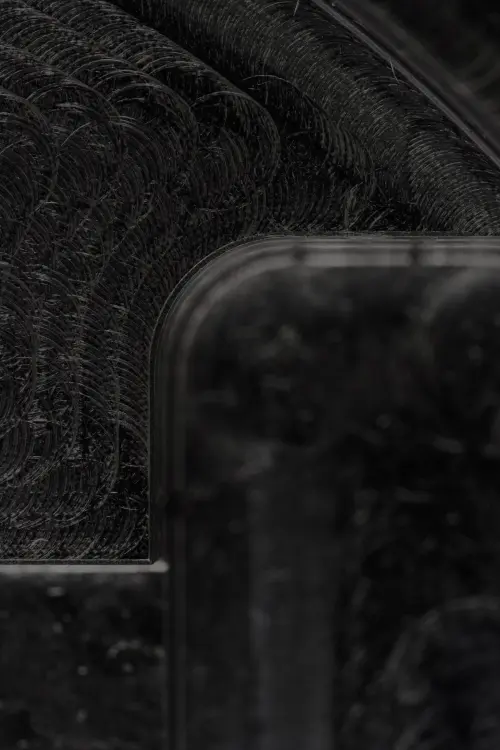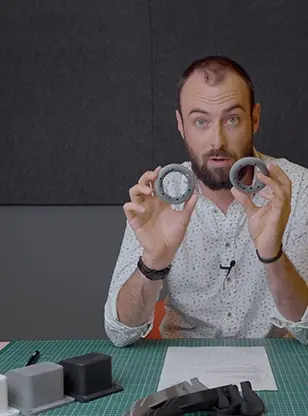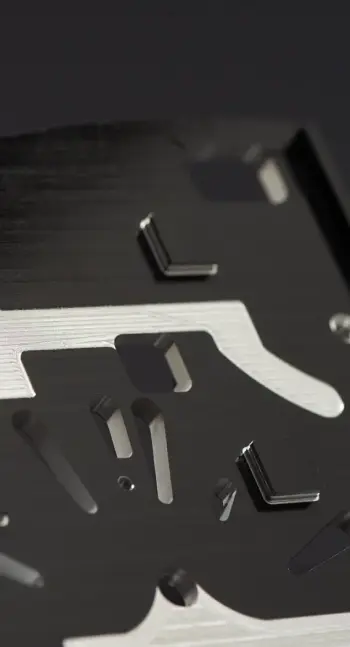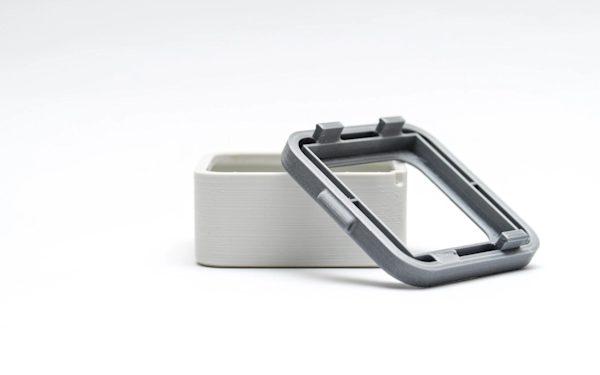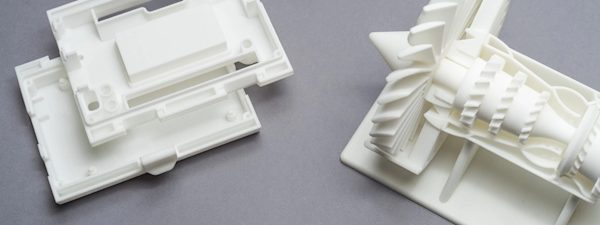3D printing
What is 3D printing? How does 3D printing work? What are the key differences between additive technologies like FDM, SLA, SLS and MJF? This collection of articles will answer all your most pressing questions about 3D printing and how this technology can work for you as an ideal prototyping and production solution.
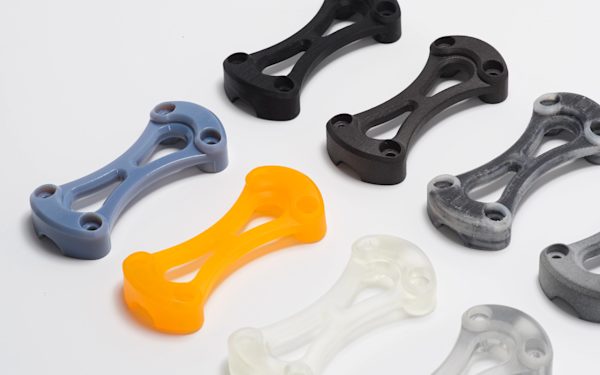
FDM vs. SLA 3D printing
Whether you’re prototyping or producing end-use parts, the choice between FDM and SLA can shape cost, design flexibility, and overall quality. FDM is known for its affordability and accessibility, while SLA often wins on detail and surface finish. In this guide, we’ll explore both technologies, so you can find the right fit for your project.
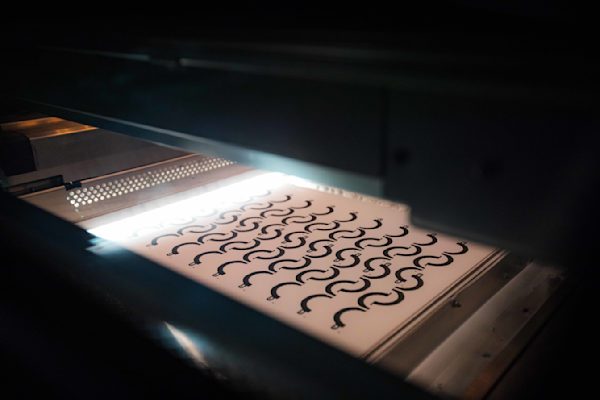
The fastest 3D printing techniques
When it comes to 3D printing, speed isn’t just a luxury—it’s often the most important factor for engineers. Processes like binder jetting and DLP are blazing trails in speed, while SLS and FDM balance efficiency and complexity for functional parts. Learn more in this knowledge base article on how to 3D print with speed and precision.
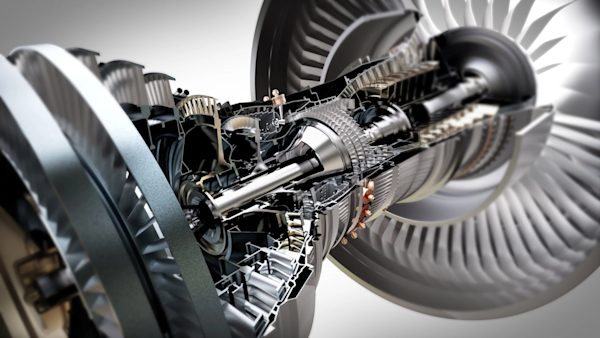
What is CAD modeling? Comparing design software for 3D printing
What is CAD modeling and why is it an essential tool for digital manufacturing? Explore the types of CAD software available for bringing ideas into the physical world via digital 3D modeling. Find the right software tools for your application.
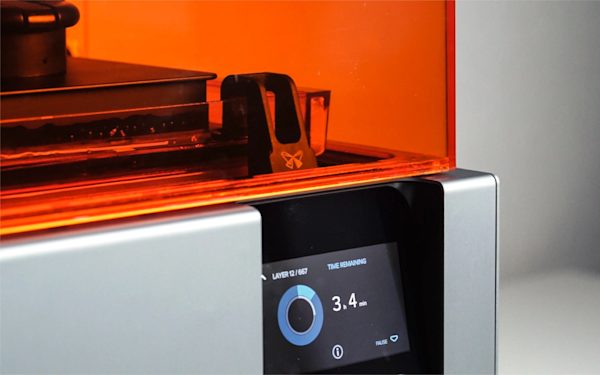
What is additive manufacturing? Get started with 3D printing
What is additive manufacturing and how does it work? Also known as 3D printing, additive manufacturing is the process of building up an object from a digital model. This article covers the basics of additive and how to use it for custom part manufacturing.
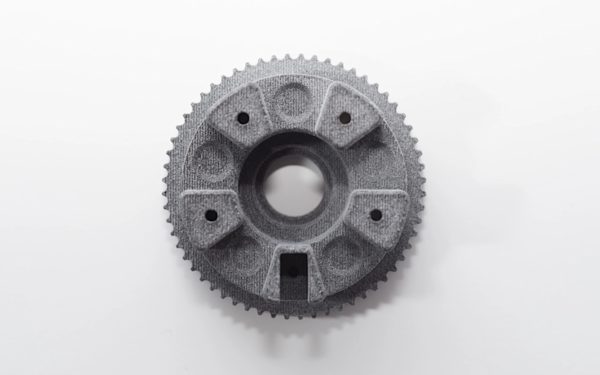
What is MJF (HP's Multi Jet Fusion) 3D printing?
Multi Jet Fusion (MJF) is a 3D printing process for building prototyping and end-use parts fast. This article explains how MJF works and its main advantages.
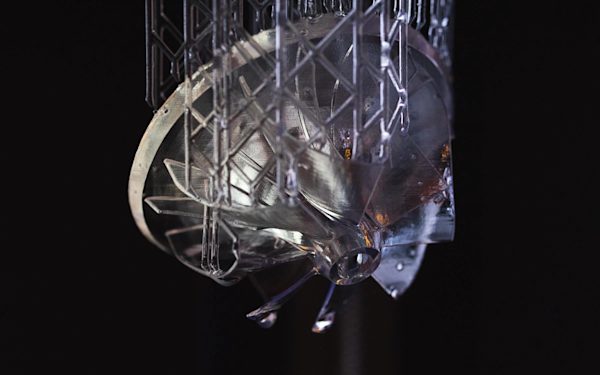
What is SLA printing? The original resin 3D print method
SLA printing is the original method used for 3D printing parts in resin. This is everything you need to know about SLA 3D printing!
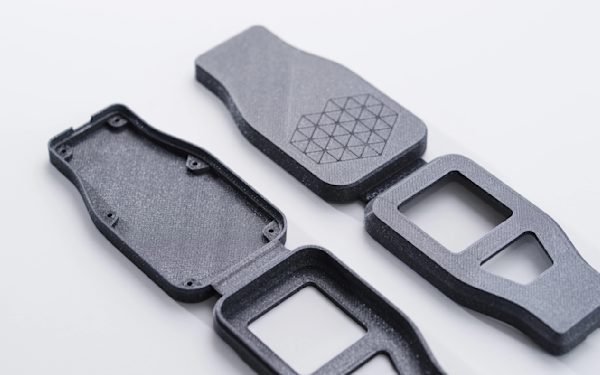
What is FDM (fused deposition modeling) 3D printing?
Interested in learning the basics of FDM 3D printing? In this article, we explain why this technology is an efficient and cost-effective choice for rapid prototyping and other applications.
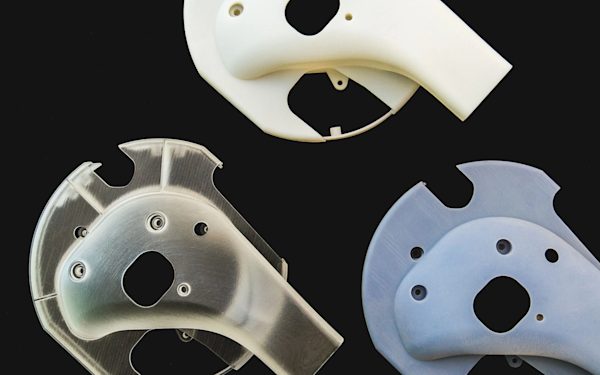
What are the types of 3D printers and what can they do?
What are the different types of 3D printers available for manufacturing today and what are their unique characteristics and capabilities? This article examines the main additive manufacturing technologies and goes into detail about every major 3D printing method.
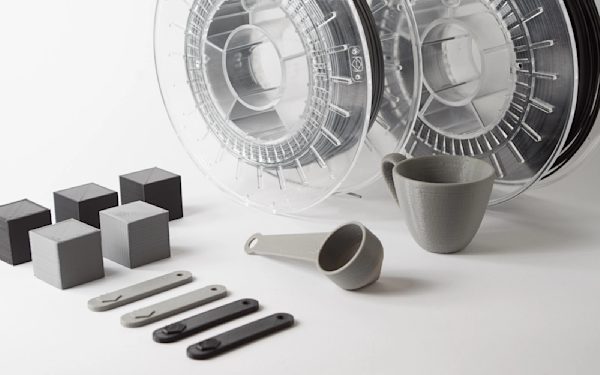
3D printing with PLA vs. ABS: What's the difference?
PLA and ABS are two essential materials for 3D printing with FDM. They are also two of the most popular materials on our platform. This comparison will help you choose which material to use for your 3D-printed custom parts.

How much does 3D printing cost? Tips for reducing your manufacturing costs
Is 3D printing the most cost-effective option and how can you keep your costs down? Explore all the factors that determine the price of 3D printing, including how to reduce the cost of printing your custom parts.

What is SLS 3D printing?
Learn about the basic principles of selective laser sintering, also known as SLS 3D printing. Discover how SLS 3D printing works, the advantages of SLS techniques for rapid prototyping and low-production runs, and the various materials and options available that will suit your part or project.
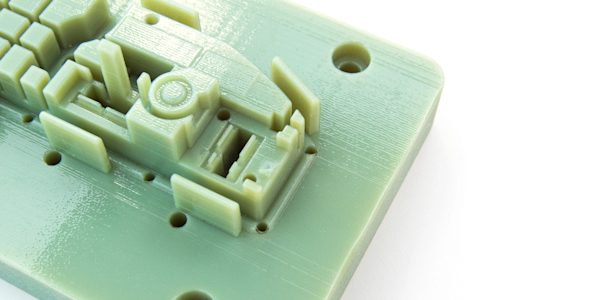
3D printing low-run injection molds
This article discusses the use of 3D printing to print molds for low run injection molding. Design considerations, materials, molds configurations and a comparative case study are all included
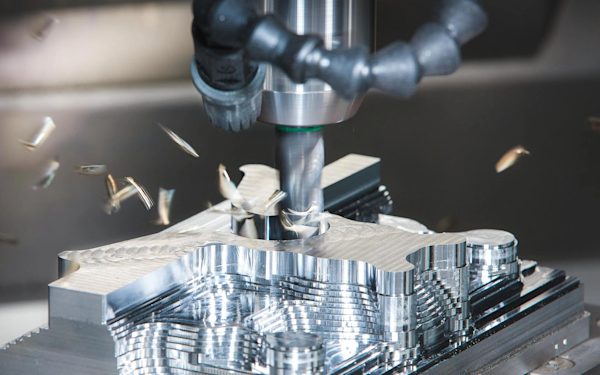
3D printing vs. CNC machining: Which is better for prototyping and end-use parts?
Is 3D printing or CNC machining better for your custom part applications? Learn the practical differences between CNC machining and 3D printing and how to select the right technology for manufacturing prototypes, end-use parts and everything in between.
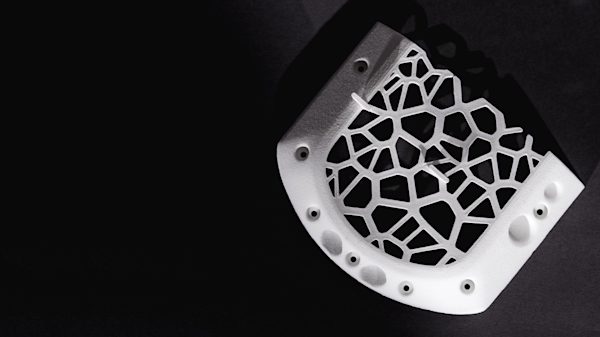
Will 3D printing replace traditional manufacturing? The advantages of 3D printing
Will 3D printing ever replace traditional manufacturing? Probably not anytime soon, but 3D printing has many advantages over traditional manufacturing that make the additive manufacturing process ideal for many prototyping and industrial applications.
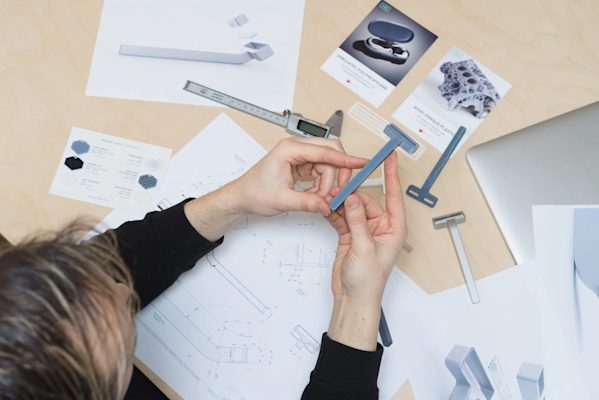
What’s the right 3D printer for prototyping? Comparing 3D printing processes
What 3D printing process is optimal for prototyping? This article explores the best 3D printers for the prototyping phase of product development, including design advice to get the most out of each manufacturing technology.
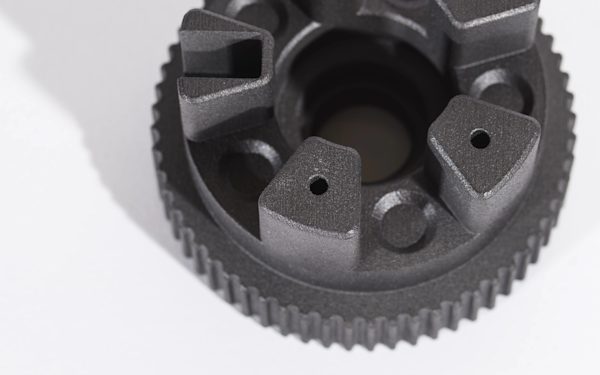
What is the difference between Selective Laser Sintering (SLS) and Multi Jet Fusion (MJF) 3D printing?
What is the difference between MJF and SLS 3D printing technology in terms of accuracy, materials, cost and lead times? Here’s how to choose the right additive manufacturing technology for your custom part needs.
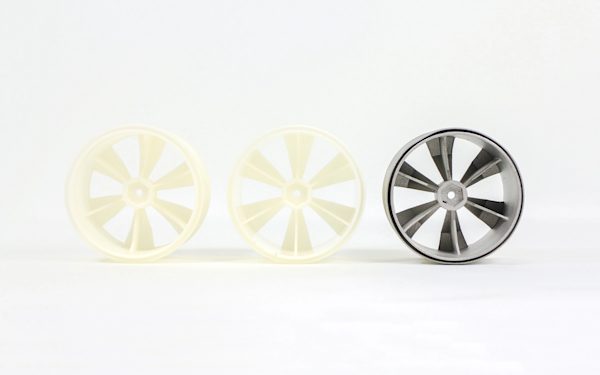
Producing low-cost cast metal parts using 3D printing
Learn how castable FDM prints can be used to produce low-cost metal parts via investment casting.
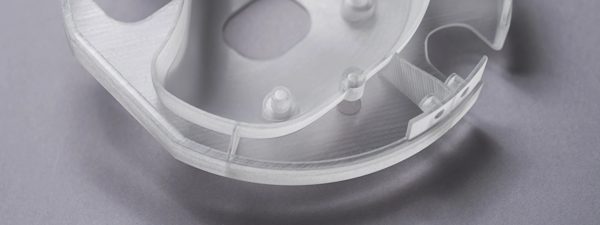
What is Material Jetting 3D printing?
What is Material Jetting 3D printing and how does it work? In this comprehensive intro to this additive process, we explore the main principles of the technology and how to tell if it's the right way to manufacture your custom parts. After reading this article you will understand the fundamental mechanics of the Material Jetting process and how these relate to its benefits and limitations.
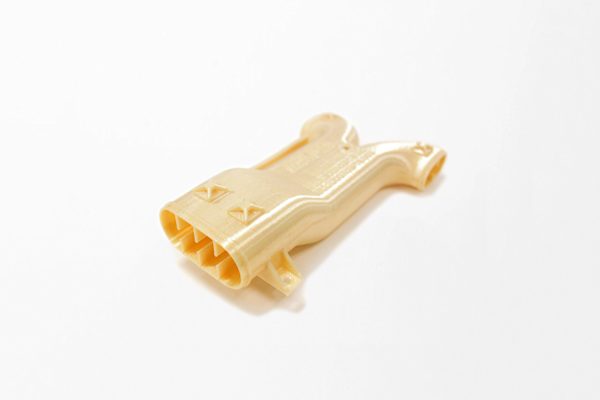
What is rapid prototyping?
Rapid prototyping uses 3D computer-aided design (CAD) and manufacturing processes to quickly develop 3D parts or assemblies for research and development and/or product testing.
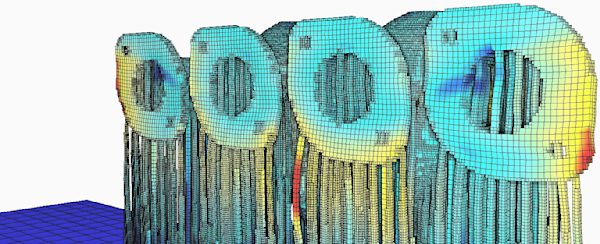
Simulations in 3D printing
Learn about the benefits and current state-of-the-art of 3D printing simulations. This article describes why, what and how to use simulations in 3D printing and gives tips to help you get started.
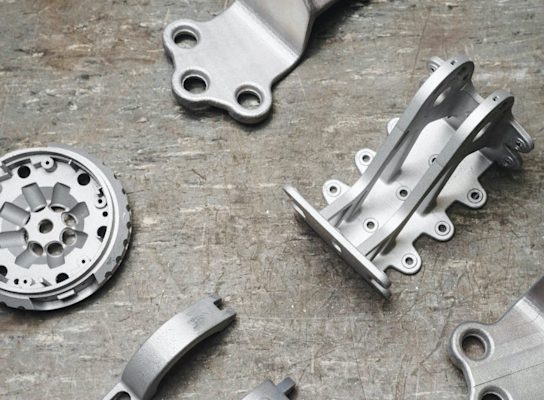
What is metal 3D printing and how does it work?
What is metal 3D printing? How does this additive technology work? This article covers the basic principles of SLM (selective laser melting) and DMLS (direct metal laser sintering) and how these relate to the key benefits and limitations of 3D printing.
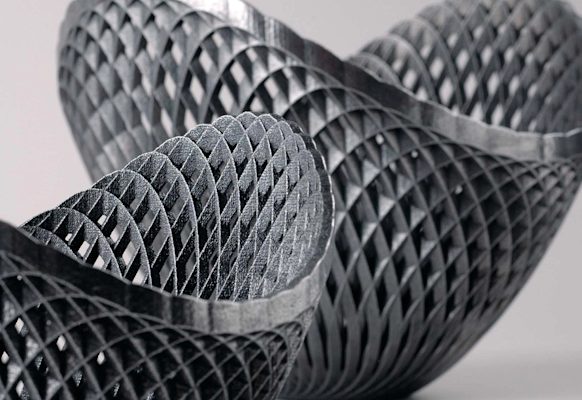
What is Binder Jetting 3D printing?
In this introduction to Binder Jetting 3D printing, we cover the basic principles of the technology. After reading this article you will understand the fundamental mechanics of the Binder Jetting process and how these relate to its benefits and limitations.
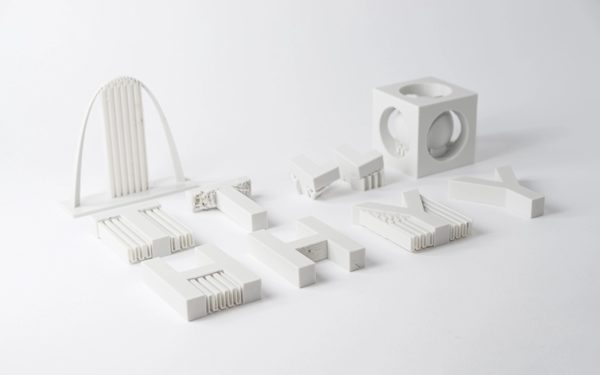
What are supports in 3D printing? When and why do you need them?
What are support structures in 3D printing? Depending on the technology you use to produce parts, you may need to print support structures to maintain part geometry. This article covers what support structures are in 3D printing, when they’re needed and how supports may affect the quality and price of your part.
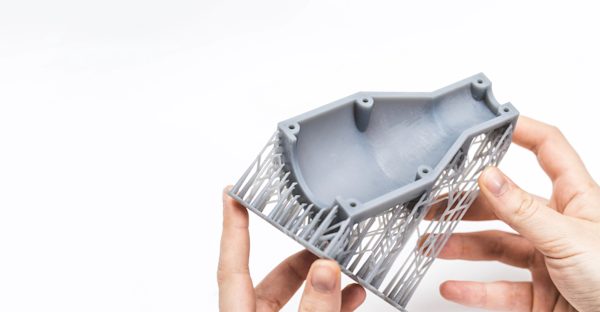
Industrial SLA/DLP vs. desktop SLA/DLP
SLA/DLP technology is used by both low-cost desktop 3D printers as well as high-end industrial 3D printers. This article will help you select the right type of machine for your application.
